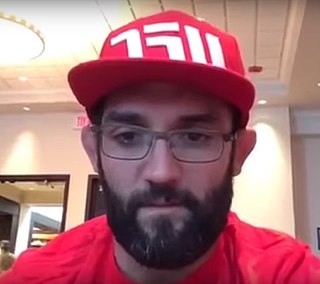A Quote by Jon Weisman
There is, in my mind, no higher compliment to pay a non-fiction book than to say it reads like a novel.
Related Quotes
It's very bad to write a novel by act of will. I can do a book of nonfiction work that way - just sign the contract and do the book because, provided the topic has some meaning for me, I know I can do it. But a novel is different. A novel is more like falling in love. You don't say, 'I'm going to fall in love next Tuesday, I'm going to begin my novel.' The novel has to come to you. It has to feel just like love.
Objectifying your own novel while writing it never really helps. Instead, I guess while you're writing you need to think: This is the novel I want to write. And when you're done you need to think: This is what the novel I wanted to write feels like and reads like and looks like. Other people might call it sweeping or small, but it's the book you chose.
If my setting is new to a reader, or the concerns of the novel are new, I hope they will learn something about the world. I would like to say that they can trust that what they do learn in the novel will be accurate, because I pay a lot of attention to facts. I do a lot of research to make sure that I'm not giving them, you know, blue moons of Jupiter. It's not science fiction.
It's certainly a cliche to remark that a nonfiction book 'reads just like a novel,' but in the case of Jonathan Eig's 'The Birth of the Pill,' I have no other recourse, since his narrative is full of larger-than-life characters sharply limned and embarked on fascinating doings, their story told in sprightly visual fashion.
I'd be surprised if non-fiction writers hate to be interviewed. We all hate them, because there's really nothing to say except "Read the book." Right? At least with non-fiction, you can kind of convey some information, and people can decide for themselves whether they want more of that kind of information. But with a novel, what am I going to do?
I read a blog about this young filmmaker in the Philippines who made a short film, and one of the characters in the film reads my novel and then starts discussing the novel with someone. The idea that my book can inspire another artist and be part of that other artist's work... that's the reason I write.































